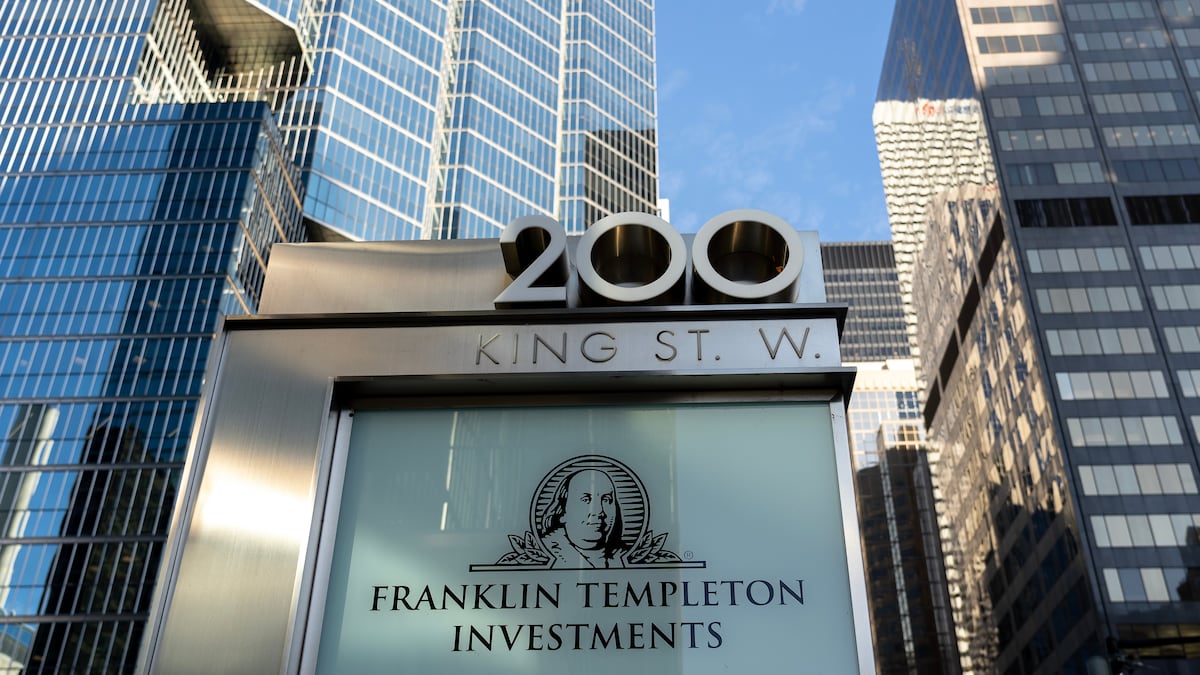- Franklin Templeton has enabled peer-to-peer transfer of BENJI tokens.
- The tokens represent shares in a $380 million money market fund.
- It is the latest move in a push to bring traditional assets onto public blockchains.
The tokenisation push is heating up.
Asset manager Franklin Templeton on Thursday enabled peer-to-peer transfer of BENJI, its yield-bearing, dollar-pegged token.
Still, the transfer ability is currently limited to institutional investors who already hold the token, according to a company spokesperson.
BENJI represents shares in the firm’s $380 million Franklin OnChain US Government Money Fund, or FOBXX, which launched on the Stellar blockchain in 2021.
While the token can be minted on the Polygon PoS blockchain, more than 99% of the supply has been minted on Stellar, a decade-old blockchain that recently began rolling out Ethereum-style smart contracts.
As of Friday evening, no investors that had minted BENJI tokens had begun taking advantage of the ability to transfer them, according to blockchain data.
“We anticipate shareholders will increasingly utilise peer-to-peer transfers as the functionality is rolled out to additional wallets on the Benji Investments platform,” Lisa Tibbitts, the company’s vice president of communications, told DL News.
Nevertheless, enabling the transfer of tokens brings Franklin Templeton closer to competition with BlackRock, the world’s largest asset manager.
Last month, BlackRock made its own foray into tokenisation when it launched the BlackRock US dollar Institutional Digital Liquidity fund, or BUIDL. Investors were able to transfer BUIDL at launch.
This week, the fund topped $300 million in assets under management, according to DefiLlama data, though about 90% is concentrated among five wallets.
Together, Franklin Templeton and BlackRock control 61% of the $1.1 billion tokenised treasuries market, according to RWA.xyz.
Although Franklin Templeton manages the single largest tokenised treasuries fund, BlackRock is a much bigger firm, managing about $9 trillion more than Templeton.
Bernstein analysts called BUIDL’s launch “the next evolution of financial markets, similar to the ETF wave of the last two decades,” and “the first major test-case for institutional holders to experience 24/7 instant settlement benefits of the blockchain.”
US dollar peg
Like BENJI, BUIDL tokens are pegged to the US dollar and represent shares in funds that invest primarily in government securities and cash. Unlike BENJI, however, BUIDL tokens trade on Ethereum.
Enabling transfers was not prompted by the launch of BUIDL, according to Tibbitts.
Jason Chlipala, chief business officer at the Stellar Development Foundation, said in a statement: “Allowing fund shares to be transferred peer-to-peer puts Franklin Templeton on the cutting edge of the financial sector where tokenised real world assets are an industry staple and more open, transparent, and accessible.”
Cristiano Ventricelli, vice president of digital economy at Moody’s Ratings, previously told DL News that institutions are looking to follow in Franklin Templeton’s footsteps and tokenise assets on Polygon and Stellar.
“Public blockchains like Polygon, Stellar, and Provenance, along with private blockchains such as Hyperledger and R3, are witnessing significant advancements,” Ventricelli said.
Increased liquidity
Moody’s Ratings is one of several firms closely watching the nascent tokenisation sector. In an April 17 report, the ratings agency said tokenisation could help increase liquidity for typically illiquid investment assets, including real estate, venture capital, private equity, and art.
BlackRock CEO Larry Fink has called tokenisation of all financial assets the “ultimate goal” of digital asset technologies in financial markets.
Franklin Templeton is eyeing additional functionality for BENJI, according to Tibbitts.
“The fund may enable transferability for additional accounts and blockchain networks in the future,” Tibbitts said.
“There may be opportunities to create other tokenised financial products and features, including interoperability with other digital assets and blockchain native facilities,” she added.
Retail investors can purchase BENJI through the Benji Investments mobile app. Institutional investors can do so through the Benji Institutional website.
Aleks Gilbert is a DeFi correspondent based in New York. Have a tip? Contact him at aleks@dlnews.com.
